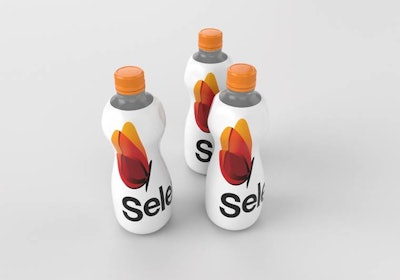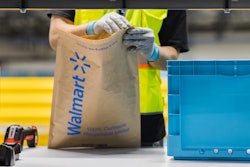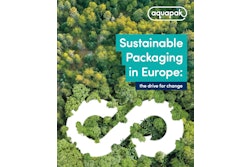
This content was written and submitted by the supplier. It has only been modified to comply with this publication’s space and style.
The goal of the strategic partnership is to produce sustainable PETG resin that will accelerate the introduction of renewable, sustainable forest-sourced materials into plastic applications and reduce fossil resource dependency. PETG is a highly transparent, FDA approved material used in a large variety of applications including cosmetics and personal care packaging, heat shrink sleeves, and durable goods, such as bulk dispenser.
UPM Biochemicals will supply Selenis, a subsidiary of the IMG Group with its new sustainable bio mono-ethylene glycol (Bio-MEG), called UPM BioPura™, to make partial BioPETG. UPM BioPura™ is produced from sustainably sourced, certified hardwood obtained from forests in the regions around Leuna in Germany, where the company is building the world’s first industry scale biorefinery converting woody biomass into next generation biochemicals. The biomass does not compete with food resources and will enable manufacturers a viable option to redefine their net zero targets and significantly reduce their scope 3 emissions* by switching effortlessly from fossil-based, to a renewable, drop-in ingredient.
UPM Biochemicals is committed to the sustainable transformation of the packaging industry and is actively engaging with partners such as Selenis to develop new, sustainable applications and products based on the biochemicals to be produced in Leuna. Both companies have a shared vision to decrease the industry’s dependency on virgin fossil materials and to drive towards a net zero circular economy.
“We are delighted to partner with Selenis. Selenis pursues a strategy to continuously reduce the CO2 footprint of its products – partnerships like ours are at the heart of a greener, more sustainable chemistry,” explained Michael Duetsch, Vice President Biochemicals at UPM.
“We will work with Selenis to deliver outstanding solutions for their customers, enabling them to innovate towards sustainable packaging solutions with a significantly reduced greenhouse gas footprint. As the packaging industry is truly striving for a more environmentally friendly future, incorporating bio-based materials like UPM BioPura™ alongside an ever-increasing share of recycled materials will be an essential part.”
Selenis focuses its product innovation on developing products that are fully recyclable in the PET stream and has revolutionary technology that upcycles plastic waste into new polymers, replacing fossil-fuel feedstocks with recycled polyester raw material. Selenis converters and brand owners can now customize their products to reduce their carbon footprint, by adding bio and recycled content, with no performance trade-offs. Moreover, Selenis is investing in self-generated solar energy that will allow the usage of fully green energy in the manufacturing process of the polymer, further supporting brand owners on their decarbonization strategies.
“We center our innovation efforts in markets where the pressure for recyclable solutions is higher because the life of the product is shorter, meaning end of life solutions are more critical. The packaging and the cosmetics industries are two examples where brand owners prioritize circularity,” explained Marta Matos Gil, Chief Sustainability Officer at Selenis.
“As we take steps towards becoming a regenerative company, developing products that meet sustainable standards in recyclability, eco-resource efficiency and eco-friendly compositions to improve their circularity is vital. Our new partnership with UPM is illustrative of how we are jointly working across the value chain to create tangible solutions that support the advancement of a circular economy and considerably reduce plastic waste.”*The UPM life cycle assessment was carried out in accordance with ISO 14040 and based on cradle-to-gate system boundary. As the biorefinery is currently in the process of being built, the LCA will be gradually updated with primary data. The study has been critically reviewed by an independent third party according to ISO 14044.

























